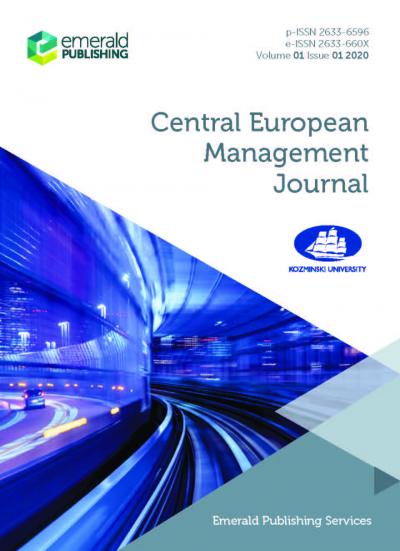Managerial Entrenchment and Firm Performance: Evidence from Moroccan Listed Companies
Mohamed Bousetta
Sidi Mohamed Ben Abdellah University of FES
10/2021 29 (3) Central European Management Journal
DOI 10.7206/cemj.2658-0845.53








